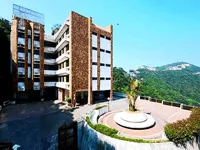
Record high housing rents raise concern on Hong Kong’s competitiveness
Many corporations are feeling the effects of high rents as it increases the expatriates’ cost of living, which weakens Hong Kong’s competitiveness.
In the luxury residential leasing market, the demand-supply imbalance and inflationary pressure continue to drive housing rents upwards. In May 2011, Hong Kong’s average luxury residential rents rose 4.2% quarter-on-quarter (QoQ) to HK$47.3 per sq ft per month, representing 2.2% above the previous peak in July 2008. A similar trend is also observed in the serviced apartment market.
“In view of sustained economic recovery and positive market sentiment, many corporations have pushed ahead in their expansion plans and are aggressively recruiting talents from all sectors. This is naturally fueling the growth of the residential leasing market and driving luxury housing rents sky-high as expatriates arrive in Hong Kong in droves,” said Simon Lo, Executive Director of Research and Advisory, Asia at Colliers International.
According to Colliers International, the luxury housing rent has already surpassed the 2008 peak rate.
With the record high rents, many corporations are feeling the pinch as it increases the expatriates’ cost of living in Hong Kong, which in turn weakens Hong Kong’s competitiveness and in some cases, deters the expatriate from accepting the move to Hong Kong. In addition, recent observed issues such as the worsening air quality in Hong Kong and insufficient international school places are also factors that may affect expatriates’ willingness to move to Hong Kong.
“The issue of air pollution in Hong Kong is a major concern for many expatriates especially those with children as it affects their quality of living, their health and that of their children,” said Clara Chu, Director of Residential Leasing at Colliers International Hong Kong.
“Further, the on-going issue of insufficient international school places is another concern for expatriates with families coming to Hong Kong,” adds Chu.
There are 35,000 international school places in Hong Kong, according to Education Bureau of the Hong Kong SAR Government. “We understand from our expatriate clients that there is a long waiting list for international school places, particularly the top tier schools, for their kids. Some of them are said to have such a long waiting list that almost makes new admissions impossible,” said Chu.
A recent survey by a chamber of commerce revealed that corporations are finding it challenging to hire or transfer in staff from overseas as their staff failed to secure schooling arrangements for their children.
As a result, some of these corporations have diverted their staff to work in other Asian locations such as Singapore where international school places are more readily available while some are seen to delay their arrival to Hong Kong until their schooling issue is solved, according to a Colliers International report.
“For expatriates who proceeds with their relocation plans to Hong Kong, many chose to stay in serviced apartments versus committing to a permanent lease until they confirm the schooling for their kids. This has caused a surge in demand for serviced apartments which drove the rents upwards,” said Chu.
The sustained rising rents, air pollution and insufficient international school places are growing concerns amongst the expatriate community, which can be potential set-backs to the long term growth of Hong Kong’s luxury residential leasing market.
However, with buoyant economic growth and positive market sentiments, corporations remain active in their business expansions and this has somewhat dampen the mounting issues. With strong occupational demand expected to sustain, luxury residential rents are projected to rise 15% in the next twelve months.








![Cross Domain [Manu + SBR + ABF + ABR + FMCG + HBR + ]](https://cmg-qa.s3.ap-southeast-1.amazonaws.com/s3fs-public/styles/exclusive_featured_article/public/2025-01/earth-3537401_1920_4.jpg.webp?itok=WaRpTJwE)









 Advertise
Advertise


